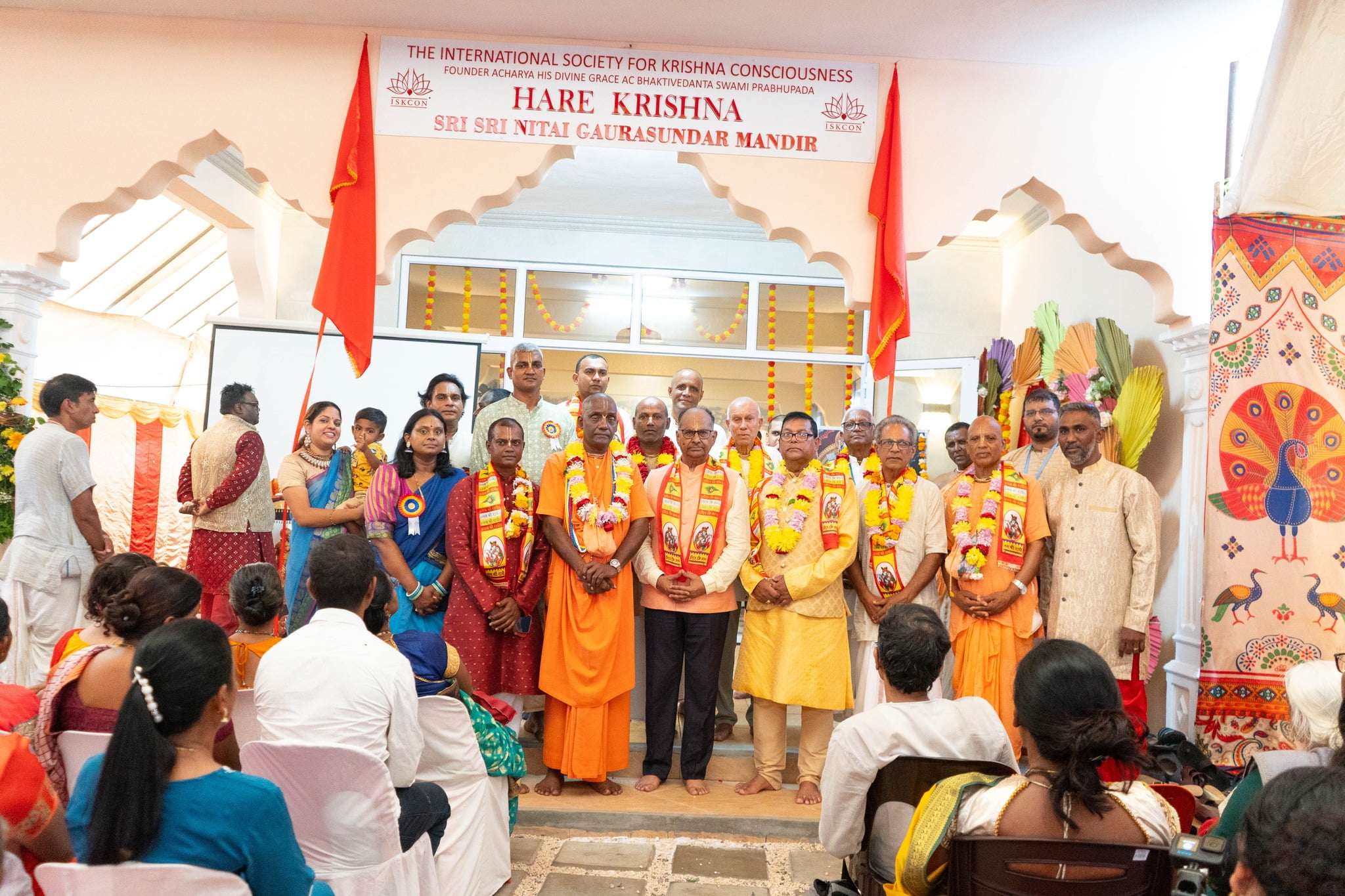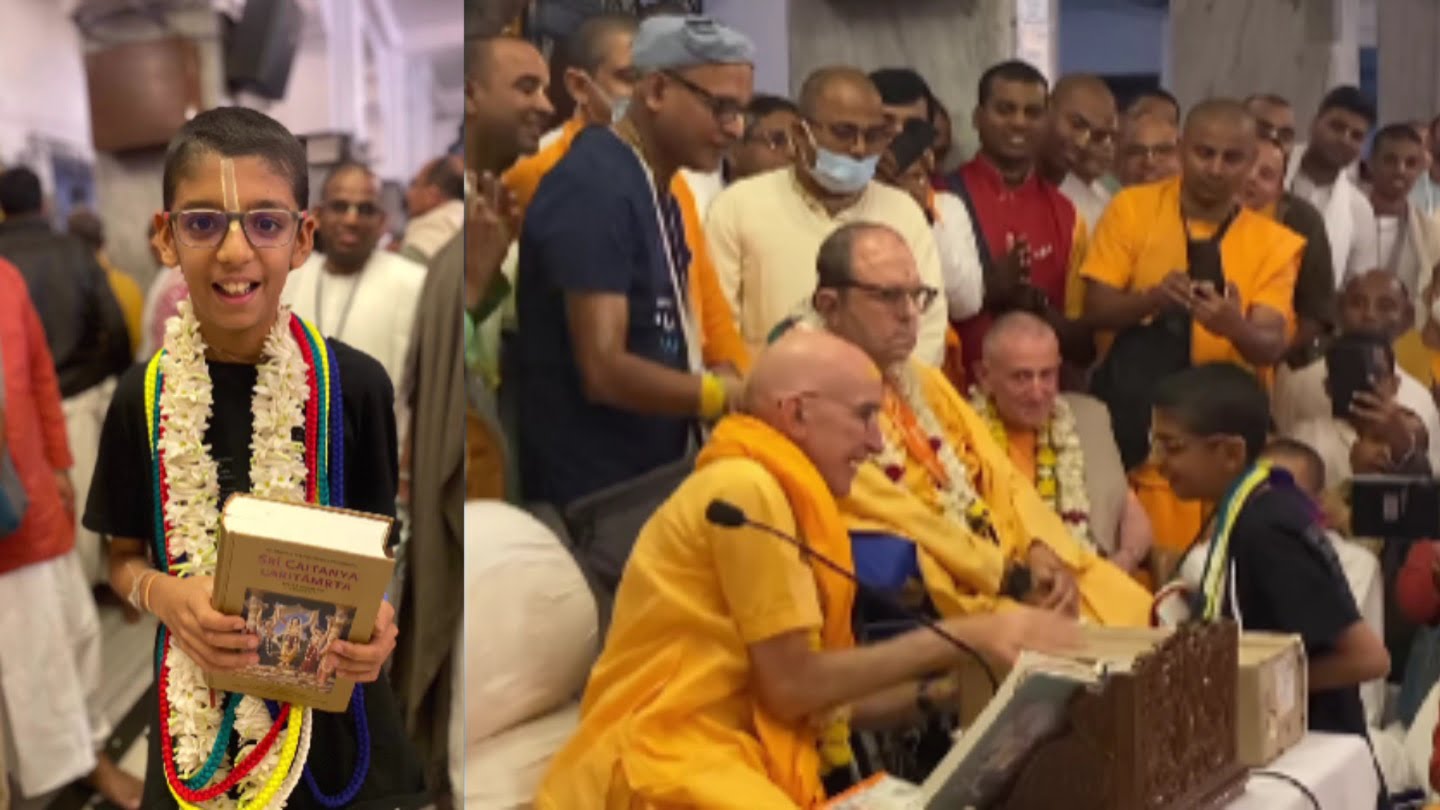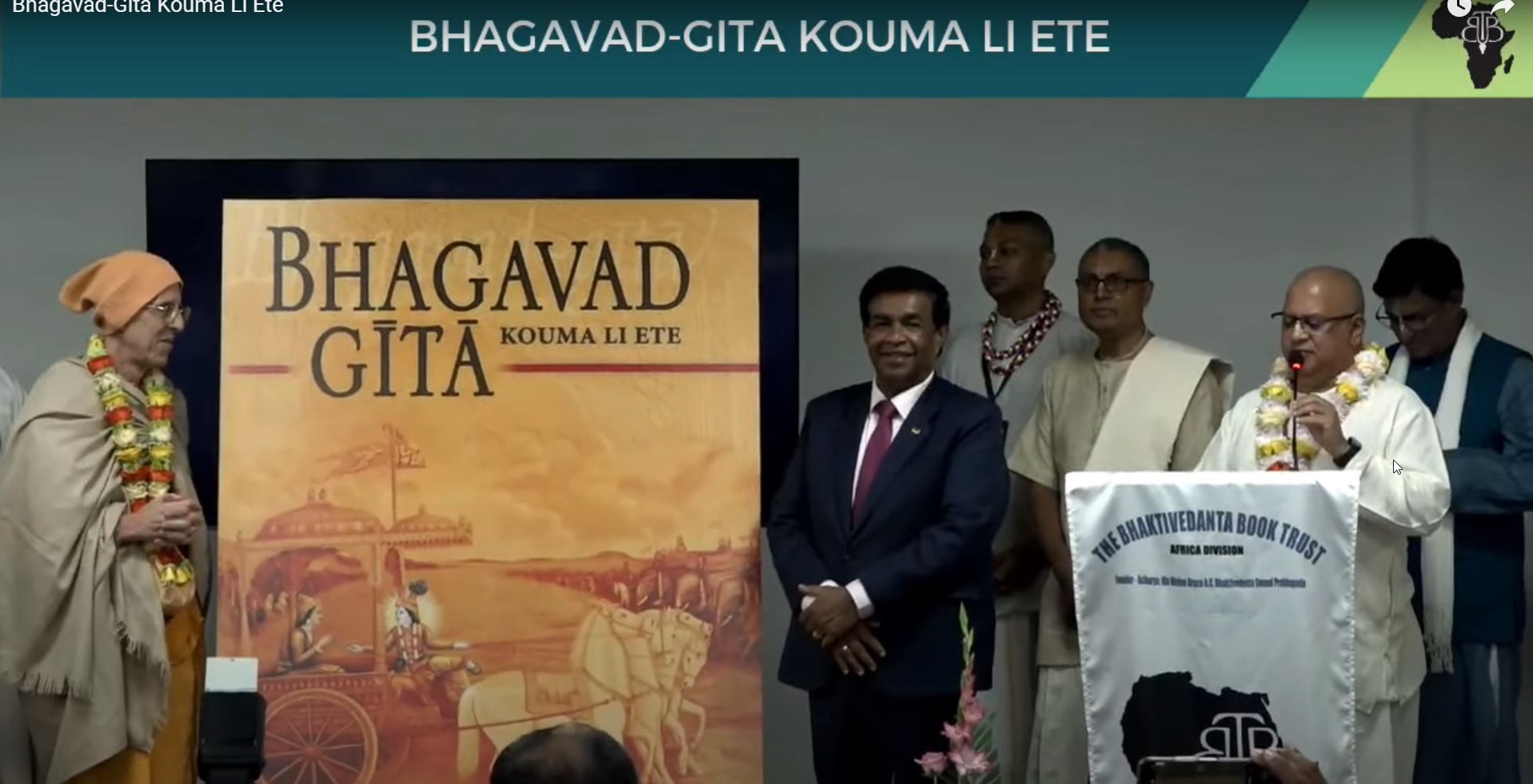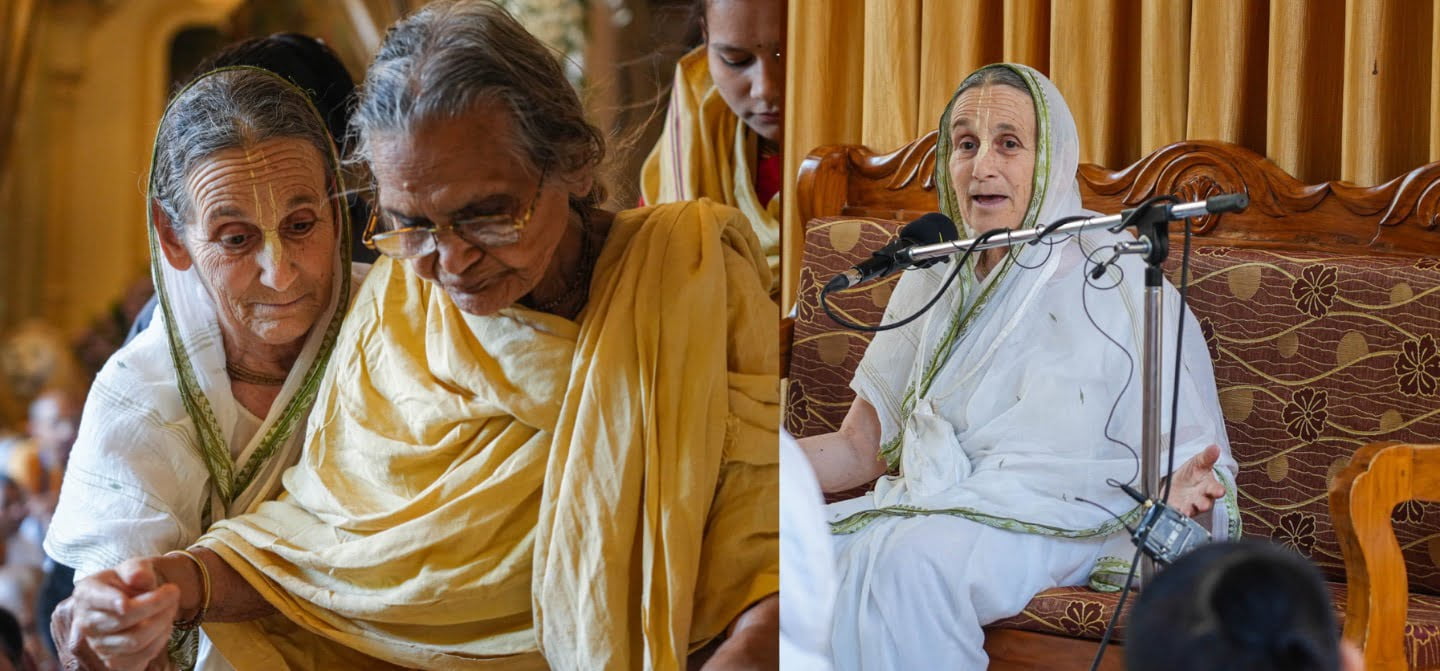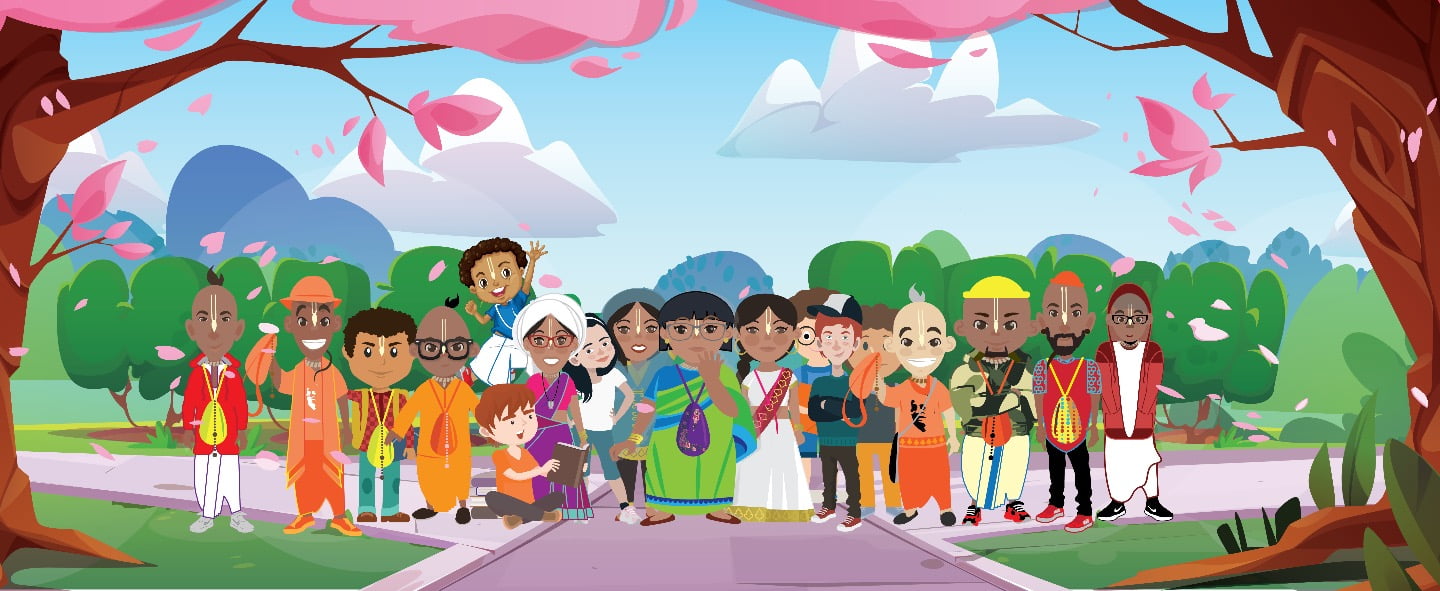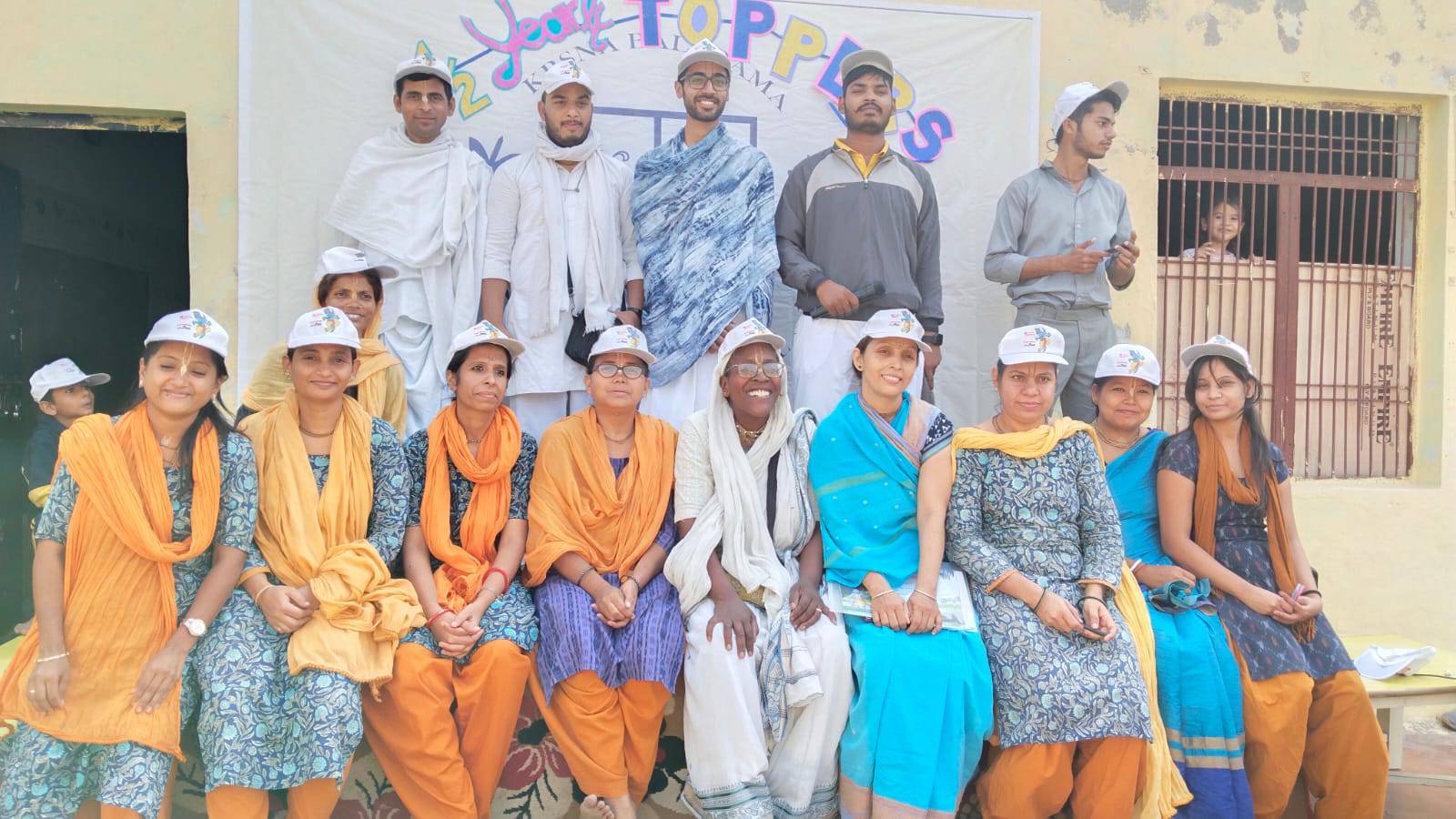How ISKCON Spanish Fork Has Responded to COVID-19
By Bhakta Thomas | Oct 03, 2020

The Radha Krishna Temple in Spanish Fork is world-famous for its huge festivals drawing tens of thousands of visitors to the Utah attraction, but COVID-19 changed everything. “Our Festival of Colors (Holi) has been going on for 25 years,” said Caru Das, co-founder of the two ISKCON temples in Utah, “Just two weeks before the March event, the governor banned any gatherings larger than ten people.” All but one of our other festivals in California and Nevada were also canceled. Not only were all the Festivals for 2020 canceled, but stay-at-home orders meant visitors to the temple, organic farm, and animal sanctuary effectively disappeared (a typical day would bring 80-100 visitors).
As protocols loosened midsummer, the Temple re-opened June 1st, and visitors started to trickle back to the iconic grounds in Utah County. Soon summer school and homeschool groups began to request tours, and families grateful to get out again began to return. “We made sure we had strong protocols in place – wearing masks, hand sanitizing, and social distancing – to ensure our guests were safe as they toured the grounds and the Temple,” said Vaibhavi devi dasi who designed the unique Temple which was completed in 2001. Now dozens of guests a day are visiting the religious landmark again.
Group visits typically include a guided tour of the animal sanctuary, a Temple tour, an introduction to Vaishnava philosophy, mantra meditation, and kirtan. Many groups also enjoy prasadam at Govinda’s Buffet following state safety guidelines for restaurants. A food truck once used at the large festivals was set up along the busy state road in front of the temple which offers visitors and locals an Indian-Mexican fusion of ala carte items. “We’ve had to quickly pivot to meet the COVID challenge and be creative in generating income to continue to support the Temple’s many projects,” said Advaita Acarya das, a resident devotee who serves at the Temple along with his wife, Kalindi devi dasi.
In spite of the absence of huge festivals, the service opportunities are still plentiful. “Our organic gardens produced the highest yields we’ve seen to date,” said Chris Castro, a resident volunteer, and gardener. “We picked and processed hundreds of zucchini, squash, pumpkins, melons, eggplants, tomatoes, and peppers.” The plentiful harvest helped devotees create dozens of delicious vegetarian preparations in 30-40 gallon quantities which can be frozen for use in the buffet and enjoyed over the Utah winters. The Temple is also getting three times the normal requests to volunteer at the Temple from WWOOF (WorldWide Opportunities on Organic Farms) and Workaway programs. Mostly young men and women in their 20’s who are taking a gap year between college and starting a career. They are all keenly interested in gardening and sustainability. This partnership has also introduced hundreds to Bhakti Yoga by providing them room and board at the Temple in exchange for service in the Temple, gardens, and with the animals.
COVID has also meant a shift in the type of service the Temple devotees now offer. The absence of festivals meant Caru Das wasn’t on the road hosting events for weeks at a time. “Because of COVID, many devotees turned to social media for classes and kirtans, so a new opportunity emerged for me to reach hundreds through weekly classes and talks on my Facebook profile or through Zoom conferences,” said Caru. “It’s an exciting and encouraging new service for me to interact with devotees from all over the world who tune in to our morning Bhagavatam classes or our Saturday or Sunday feasts which are also live-streamed on Facebook.”
Although the virus has presented many difficulties to different ISKCON communities it can also be seen as a unique opportunity to look for new and creative ways to spread Krsna consciousness and offer service, “When one door closes, Krsna opens another, so we are excited and hopeful about the future,” said Caru Das.



